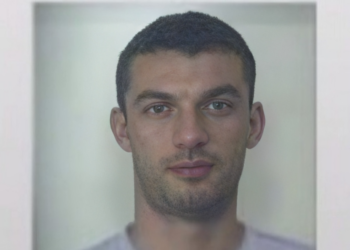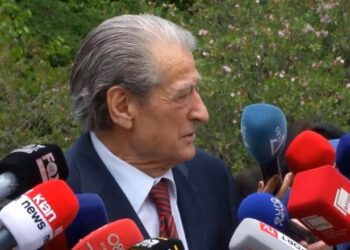June elections are last chance for country and region to reverse spiral into violence.
“Financial Times” magazine’s analyst, also “Russia Foundation” founder David Clark, wrote an analysis of the tense situation in the Balkans and political elections taking place in several countries in the region, including Albania. According to Clark, Albanian government failed to some extent fulfill all electoral promises, and that the political impasse and lack of consensus may lead the country’s destabilization.
David Clark’s analysis
In this year of make-or-break elections in France, Germany and the UK, it was never likely that Albania’s parliamentary elections in June were going to command the same level of international attention. Yet developments in the Balkans over the coming months could prove just as significant for Europe’s future, if not more. High quality global journalism requires investment.
Two decades on from the break-up of Yugoslavia and conflicts that followed, the region is again plagued by political instability, rising extremism and ethnic tension. With the EU’s leading states distracted by their own domestic problems, many experts see a new round of Balkans wars as one of the continent’s most serious emerging risks. Bosnia-Herzegovina is more bitterly divided today than at any time since the signing of the Dayton peace agreement in 1995, as Bosnian Serb leaders move closer to secession. Montenegro is still reeling from allegations that Russia sponsored an attempt to overthrow its government and assassinate its sitting prime minister last year.
Serbia, under hardline nationalist control, remains unreconciled to the loss of Kosovo and has threatened to use troops to defend ethnic Serbs there. And Macedonia is earning its reputation as the region’s most unstable state with four elections in two years failing to produce a functioning government and nationalists violently attacking parliament last month in protest at the election of an ethnic Albanian as speaker.
Albania itself is on the verge of becoming similarly ungovernable, as the opposition continues a three-month boycott of parliament and mass protests are scheduled this weekend. A boycott of the general election could follow unless the Socialist government of Prime Minister Edi Rama agrees to step aside while the vote takes place.
The opposition claims that only a caretaker government of technocrats can be trusted to ensure a free and fair vote. It has credible grounds for saying so. A report by Organisation for Security and Co-operation in Europe election monitors on Albania’s 2015 local elections detailed serious abuses including media bias, voter intimidation and the misuse of public resources by the ruling party. An election with only one participant would install a government with immense power but no legitimacy, dividing the country and forcing politics on to the street.
Albania’s European partners have additional reasons to be concerned about the country’s direction. Mr Rama has been quick to play the nationalist card with little regard for the wider regional consequences. Macedonian politicians complain that he interferes in their internal affairs and fosters ethnic tension by encouraging the Albanian minority to raise new demands. By publicly toying with the idea of a union with Kosovo, he risks provoking Serbia and reopening the Pandora’s box of Balkan nationalism. If the idea of a Greater Albania is allowed a free rein, demands for a Greater Serbia and a Greater Croatia are sure to follow, along with the prospect of a regional conflagration that would be even harder to contain than the wars of the 1990s. Then there is Albania’s role as a narco-state in the making.
The country has long acted as the main gateway for heroin and cocaine entering Europe. More recently, it has become the continent’s largest outdoor producer of cannabis, with increasingly large areas of the countryside given over to its cultivation. Cannabis production increased five fold last year, according to the US State Department. The attractions of the drug trade are obvious. With the prime minister failing to deliver the 300,000 new jobs promised at the last election, cannabis growing offers huge financial rewards to those without other economic opportunities. Proceeds from the business have been estimated at around half of Albania’s GDP. Allegations of high-level collusion with the drugs cartels have been levelled at some people in the government, and not just by the opposition.
Ylli Manjani, the former justice minister sacked in January, claims that his efforts to clamp down on cannabis production were blocked by government colleagues. The prime minister’s deputy made light of those accusations. What we do know is that the government’s strategy for dealing with the problem has been largely ineffectual. There have been dozens of low level arrests, but as the EU has noted, the mafia bosses driving the trade remain apparently untouchable. As in so many of the world’s trouble spots, a major beneficiary of political instability, ethnic tension and lawlessness in the Balkans is violent Islamism. Although historically moderate, some within the region’s Muslim communities have become increasingly attracted to the message of ISIS and other terrorist groups.
Many Albanians are thought to be among a large contingent of Balkan Muslims fighting with ISIS in Syria. Unless the region’s slide into rivalry and disorder can be reversed, jihadist groups are likely to grow in strength. The EU is in a dilemma about what to do with the divided and poorly governed countries of the Western Balkans. On the one hand, EU membership is the closest thing the region has to a unifying vision capable of transcending sectarian lines. Accession also provides the only significant impetus for political and economic reform.
Take those things away and events could spiral out of control very quickly. On the other hand, the EU already faces significant problems with declining democratic standards in some of its newer member states. The EU cannot afford to import any more political problems by lowering the threshold for membership. So much has gone wrong in the Balkans in recent years. European leaders should be using what influence they have to ensure that Albania’s election becomes a turning point for the better, not another stage of its descent into disorder.
David Clark is chairman of the Russia Foundation












